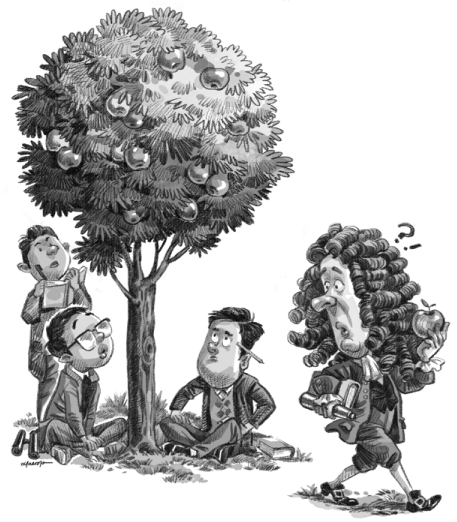Self-taught scientists must answer questions
Updated: 2016-02-27 09:05
By Xu Lai and Sun Zhengfan(China Daily)
|
|||||||||
 |
| LI MIN/CHINA DAILY |
Alfred Nobel might have never expected his name to be associated with a Chinese national named Guo Yingsen, who is nicknamed "Brother Nobel" for having said at a job-seeking TV show in 2010 that his theory could win him the Nobel Prize for physics. The TV show video clip became popular online after the recent discovery of gravitational wave and showed Guo mentioning the terms.
Who or what made Guo popular overnight is unknown, for in the TV show, the only thing he did that had any relationship with science was simply mentioning three physics terms: "accelerated system", "gravitational wave" and "material wave". Since one can easily come across these terms on the Internet, Guo does not become a potential winner of the Nobel Prize for physics because of this.
One year after the TV show, Guo appeared at the gate of Peking University and claimed to have "overthrown modern physics", challenging "all scientists" in China. Most Chinese physicists then ignored Guo, because when some of them questioned him about the "concepts", he refused to answer their questions. He is also reported to be rather rude with scholars trying to offer him genuine advice.
That's not the ideal way of practicing modern science, especially because every generation of scientists improves on its predecessors' theories. Of course, not all past theories are correct and many discoveries are made by adjusting or improving them.
But scientists adjusting those theories have a thorough knowledge of the subject, and while adjusting them they have to answer the questions of fellow scientists. No wonder Isaac Newton said: "If I have seen further it is by standing on the shoulders of giants."
Modern science is so well developed and divided into so many detailed branches that it is hard to imagine an untrained person changing everything just through self-learning.
Many popular science fans may argue that Albert Einstein is an exception. But that is not true. Einstein first worked in the Swiss Patent Office, and before revolutionizing modern physics, he had been keeping record of his exchanges with fellow scientists. Also, Einstein received modern education and was well-trained even though he openly pointed out flaws with the official education system.
Many self-appointed scientists claim to "have solved" various questions. One of the most frequently "solved" questions is Goldbach's Conjecture and a most frequently "improved" or "overthrown" theory is that of relativity. Yet none of the self-proclaimed scientists has been able to explain clearly what he/she meant and the few that have tried to do so have erred in proving their "theories". Guo is one of them.
That, however, does not mean the gate to science is permanently closed to amateurs. Zheng Xiaoting, a professor at Linyi University in Shandong province, is perhaps the best example of a self-made scientist in China. He is, by profession, an entrepreneur, yet he has spent decades studying dinosaur fossils and founded Tianyu Museum.
His discovery of xiaotingia zhengi, a dinosaur named after him, has earned him the respect of scientists. Also, he has published essays in Nature, a British interdisciplinary scientific journal. And it is for his research that Linyi University granted him professorship.
The bold media headlines related to Guo - such as "Potential Nobel Prize winner suppressed" - and Guo's "theories" are rather speculative. Such reports may not only mislead the public, but also harm Guo's interests because they can encourage him to bask in his illusive dream. Most importantly, they are unfair to all the scientists who are working hard to promote true science.
Xu Lai is editor-in-chief of guokr.com and Sun Zhengfan a PhD candidate in astronomy at the University of Science and Technology of China.
Related Stories
Scientist argues for license to 'edit' human embryos 2016-01-15 08:01
Winning top award, scientist shakes hands with history 2016-01-13 12:00
Scientist cited for semiconductor work 2015-12-31 12:31
Scientist helps to boost food security 2015-12-22 07:56
Today's Top News
Inspectors to cover all of military
Britons embrace 'Super Thursday' elections
Campaign spreads Chinese cooking in the UK
Trump to aim all guns at Hillary Clinton
Labour set to take London after bitter campaign
Labour candidate favourite for London mayor
Fossil footprints bring dinosaurs to life
Buffett optimistic on China's economic transition
Hot Topics
Lunar probe , China growth forecasts, Emission rules get tougher, China seen through 'colored lens', International board,
Editor's Picks

|

|

|

|

|

|







